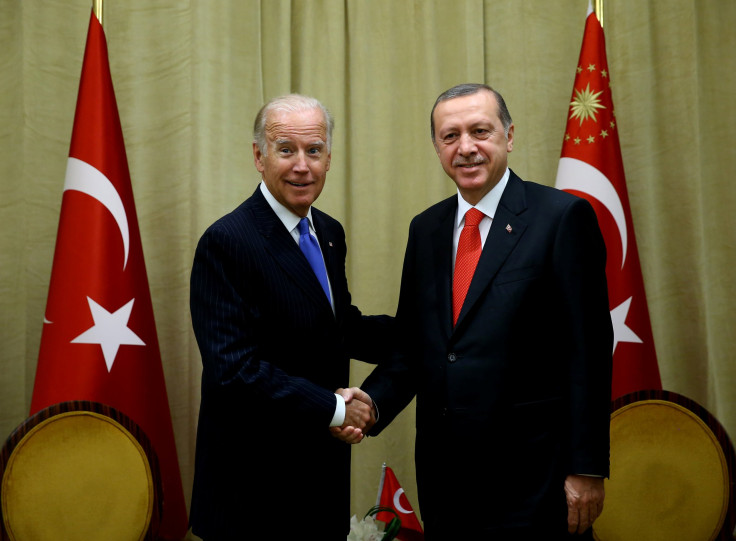Turkey EU Membership: Ankara Might Ditch Europe, Join China And Russia As Part Of The Shanghai Cooperation Organization

Following the rise of conservative populist movements in much of Europe and the United States, Turkey is reconsidering its long-term bid to join the European Union. Speaking to reporters this week, Turkish President Tayyip Erdogan said the so-called Brexit vote alongside the rise of those conservative voices and an long-delayed application for access to the EU gives the country momentum to consider other options.
“Brexit can spread, such voices are heard from France and Italy. Under these circumstances, Turkey should feel calm. One should not say that the European Union is the only option. Why can’t Turkey become a member of the” Shanghai Cooperation Organization, Erdogan asled on a flight back from an official visit to Uzbekistan, Russia's Sputnik News reported Wednesday.
The Shanghai Cooperation Organization is a military, economic and political alliance between China, Kazakhstan, Kyrgyzstan, Russia, Tajikistan, and Uzbekistan established in 2001 in Shanghai. The bloc was originally developed to fight against terrorist groups and drug trafficking from nearby Afghanistan.
Turkey’s interest in joining the cooperation appears to be reciprocated. Chinese Foreign Ministry spokesman Geng Shuang said Monday Turkey has already been a “dialogue partner” with the group and has cooperated with the regional bloc for a while, according to Reuters.
Turkey, a member of NATO, has been vying for a spot in the European community for a very long time. The country signed an agreement with the region in 1963 before submitting a formal application for entry into the EU -- which was founded in 1993 -- in 1987. Talks between Ankara and the EU officially started in 2005.
Turkey’s membership bid has been hobbled by European concerns about its commitment to democratic freedoms and officials have been particularly concerned lately with a crackdown on political opponents by the Erdogan administration after a failed coup attempt in July. Those conditions have led to some of the most fragmented negotiations between the EU and Turkey in the 11 years of negotiations.
© Copyright IBTimes 2024. All rights reserved.












